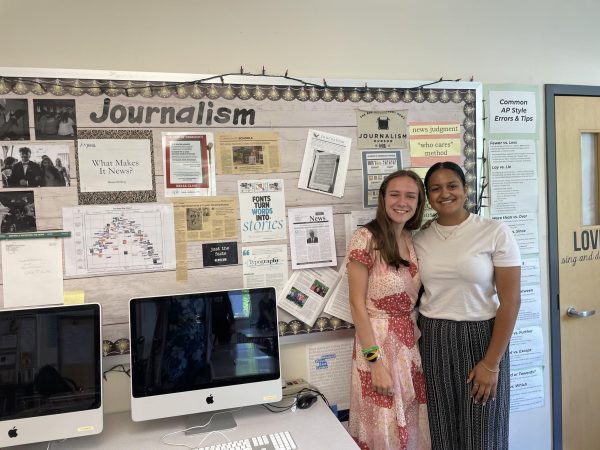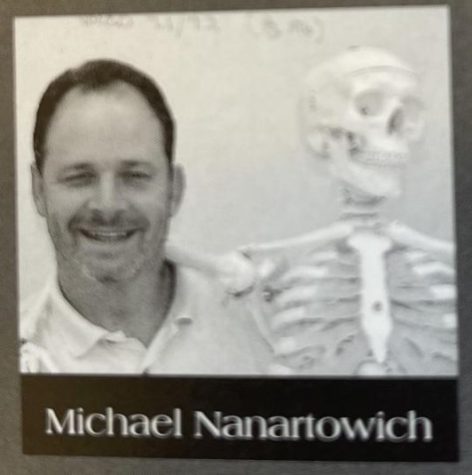College Essay Tips and Tricks
The School Counselor Conference Room | by Alessandra Burnett
November 9, 2022
Navigating the essay portion of the college application is challenging, and deadlines are right around the corner for Hudson High students. Experts weigh in with tips on how students should approach this process.
Getting Started: Prompts and Topics
Before beginning the essay, students need to pick a topic that shows their personality.
“Your essay is all about you, use it as a place to show who you are as a person outside of your high school grades and letters of recommendation,” said Justin O’Connor, Admissions Counselor at Massachusetts College of Liberal Arts (MCLA).
The Common Application has five to six prompts that Lauren Pupecki, Director of Counseling, explains are meant to assist in finding a topic, which students should review.
“In the eighteen years that I’ve been involved in this college planning, I’ve seen them change once, said Pupecki.
If none of those prompts appeal to a student, there is an option to share an essay on any topic of your choice. It can be one you’ve already written, one that responds to a different prompt, or one of your own design.
However, some students still struggle with narrowing down a topic that works for them; one way to get around this is to look at the essay from a different angle. O’Connor suggests that students do not view the essay as a formal paper, but more as a story from their life.
“A lot of admissions counselor’s favorite essays to read are narratives that students have written about their lives. You should feel free to write in the way that you’re most comfortable, and best represents who you are,” O’Connor said.
In addition, many students feel that the topic of their essay has to showcase all of the difficult times that they have endured. The happenings over the past few years, especially connected to the pandemic, have generated even more essays with solely negative topics.
“Bad times are a part of life, and there are certainly things you’ll want to disclose elsewhere in your application, but you shouldn’t force yourself to relive your life’s trauma in the hopes of making an impact on your reader,” O’Connor states, “if you do write about something that brought you down, make sure that you say what you learned and how you grew from it.”
Writing can be difficult if students aren’t very interested in what they are writing.
Jennifer Cluett, Dean of Admissions at Worcester Polytechnic Institute, encourages students to write about a topic that interests them and not what they think will interest others.
“Write about something that you are passionate about!”
You’re talking about admission counselors sitting around a table reading hundreds of essays. You definitely want your first sentence to be attention-grabbing.
— Lauren Pupecki
Writing: Hooks, Length, & Word Choice
After students have chosen a topic, the next important part is to craft a great hook. “You’re talking about admission counselors sitting around a table reading hundreds of essays,” Pupecki describes, “You definitely want your first sentence to be attention-grabbing.”
Common App only accepts 650 words, so the length of the essay is important to pay attention to because admissions counselors lose interest if an essay is too long. Also, when an essay is too drawn-out it can take away from the overall theme or message.
Rachel Masson, Associate Director of First-Year Recruitment at the University of Massachusetts at Amherst, strongly advises students not to actively try and extend their essays.
“650 words is a limit – not a goal!” she said.
Word choice is just as essential when composing the essay. Many students feel the need to add unnecessary words with the goal to impress admissions; Patrick Deane, Assistant Director of Admissions at Worcester Polytechnic Institute, has seen examples of this many times.
“You DO NOT have to be William Shakespeare in your essay,” Deane tells students, “Write to the best of your ability and show what you can communicate using written words.”
Word choice is also important to make sure that your essay sounds like you.
“Be authentic! Use your own voice. Have a friend read it back to you- does it sound like you? Or are you using language and phrasing that feels forced?” Cluett said.
Editing: Grammar, Typos, & Editing Strategies
The last step before a student turns in their essay is editing. When editing, students should not only look for awkward sentences or poor structure but also basic grammar and spelling issues. Many admissions counselors urge students to take advantage of spell check. Even if a student has an amazing topic, a great hook, and perfect structure, incorrect punctuation or capitalization can take away from all of that.
“Really spend time proofreading your essay,” states Alexandra Bernardo, Assistant Director for Undergraduate Admissions at the University of Massachusetts at Boston, “An essay with a lot of typos and poor structure will look like there wasn’t time spent on it, so make sure to leave yourself time not just to write your essay but to edit it sufficiently as well.”
A great way for a student to edit their essay is to read it back to themselves. Students are also strongly encouraged to send out their essays to as many people as possible to proofread.
“You would be shocked at how many obvious mistakes we find in college essays,” Deane describes, “re-read it, read it out loud, read it backward, get your teachers to read it, parents, guardians, friends, anyone you feel comfortable with to catch any mistakes that may pop up.”
Final Thoughts: Why Students Shouldn’t Stress
The essay is one of the most stressful portions of the college admissions process. Picking a topic that is able to catch an admission counselor’s attention, deciding what’s good or not good enough to be in the essay, and trying to convey who they are in such a small piece of writing, students feel they have much to live up to with the essay. However, Pupecki lets students know that even though the essay is a big portion of the application process, it isn’t everything.
“Write the essay as well as you can, and make sure that you have someone check it for grammar and wording, but it’s not the end of the world if your essay isn’t as perfect as you want it to be,” said Pupecki



















